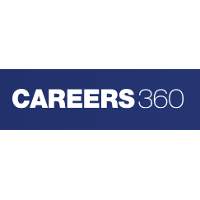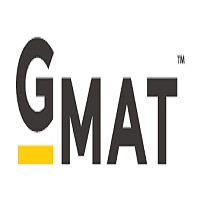Pursue MD/MS in UK
Want to study abroad? Plan your Journey
Master in Rehabilitation Science is a two-year postgraduate degree programme. The M.R.Sc. programme is designed to provide students with the impact of disability and the recovery of people with physical, intellectual, and developmental disabilities. The Master in Rehabilitation Science (M.R.Sc.) degree also helps students learn how to get back or improve the abilities of a person that he or she will need for daily life.
The Master in Rehabilitation Science will equip students with the skills essential to design and deploy effective rehabilitation programmes. Master degree in rehabilitation science, provides knowledge on comprehensive understanding of the rehabilitation of individuals with disabilities.
The M.R.Sc. full form is a Master in Rehabilitation Science, which is aimed at providing an in-depth understanding of the rehabilitation of persons affected by certain disabilities. The Master in Rehabilitation Science programme encompasses theory as well as practical subjects to provide comprehensive learning.
| Particulars | Values |
|---|---|
Degree Name | Master in Rehabilitation Science |
Degree Type | Postgraduate |
Duration | Two years |
| Semesters | Four |
Eligibility | Bachelor’s Degree in a Relevant Discipline |
Admission Process | Entrance Examination |
Average Fees | Rs 6.5 Lakhs |
Average Salary | Rs 3 LPA |
Top Recruiting | Rehabilitation Centres, Hospitals, Educational Institutions, R&D firms |
M.R.Sc. fees vary from one college to another. Students must check the Master in Rehabilitation Science fees before applying for any particular M.R.Sc. college. The Master in Rehabilitation Science fees range from Rs 3 lakhs to Rs 10 lakhs.
Master in Rehabilitation Science or M.R.Sc. helps students learn about how to improve physical or cognitive abilities that a person will need for daily life. A person may lose his or her physical or cognitive abilities due to different reasons which could be in the form of diseases or injury, disabilities due to developmental level, birth defects, genetic disorders, the effect of any medical treatment, or surgery.
The M.R.Sc. degree deals with proper care, therapy, and changes to the lifestyle of the affected person, which will help individuals to improve their condition thereby assisting them to lead a productive and fruitful life.
To pursue an M.R.Sc. course, candidates must meet the M.R.Sc. eligibility criteria. The Master in Rehabilitation Science eligibility criteria will vary depending on the colleges offering M.R.Sc. courses. The M.R.Sc. eligibility criteria are as follows:
Students willing to pursue a Master in Rehabilitation (M.R.Sc.) are required to have a unique set of skills and a background knowledge of the field. The following table shows the skill sets required for the M.R.Sc. degree programme.
Admission to the M.R.Sc. degree is done based on the entrance test (depending upon the educational institute in which you wish to take admission), followed by GD-PI. Candidates who are shortlisted for the Master in Rehabilitation programme need to follow the further admission criteria as prescribed by their preferred colleges.
Candidates must meet the Master in Rehabilitation Science cutoff to take admission to their preferred M.R.Sc. college. The Master in Rehabilitation Science cut-off is used to determine students' merit for admission to the M.R.Sc. degree programme in various medical colleges in India. The difficulty of the exam and the number of participants decide the cutoff for the course.
Master of Rehabilitation Science degree is completed in a duration of two years, which is divided into four semesters. The course syllabus consists of theory, practicals, fieldwork training, and a project/dissertation. The table below highlights the semester-wise M.R.Sc. syllabus at Jindal Institute of Behavioural Sciences.
Master in Rehabilitation Science 1st year syllabus covers the introductory subjects of the curriculum. Some of the subjects are introduction to disability and rehabilitation, rehabilitation processes, research methods, and clinical work. In the table below we have discussed the MRSc first year syllabus.
Semester 1 | Semester 2 |
|---|---|
Introduction to Disability & Rehabilitation | Introduction to mental health conditions |
Rehabilitation processes I | Rehabilitation of Persons with locomotor disabilities |
Introduction to locomotor disabilities | Rehabilitation processes II |
Research Methods I | Research Methods II |
Field/ Clinical work | Field/ Clinical work |
Master in Rehabilitation Science 2nd year syllabus covers various subjects, like Rehabilitation of persons with ASD & ADHD, ID & SLD, or with multiple disabilities. In the table below we have discussed the MRSc. third year syllabus.
Semester 3 | Semester 4 |
|---|---|
Rehabilitation of persons with ASD & ADHD | Internship (Selected area – I/ II/ III) |
Rehabilitation of persons with ID & SLD | Specialisation I – locomotor Disabilities |
Rehabilitation of persons with multiple disabilities | Specialisation II – Developmental Disabilities |
Rehabilitation administration & Legislation | Specialisation III – Intellectual Disability |
Field/ Clinical work | - |
The M.R.Sc. course is related to paramedical sciences, after completing this course, students will be able to find work at various healthcare institutes in India and other foreign countries. They can join hospitals, rehabilitation clinics, nursing homes, orphanages, old age homes, depending upon the demand. With the increasing demand of the rehabilitation facilities, schools and training institutes for differently-able children and people and NGOs have started hiring rehabilitation professionals.
There are huge career options after the M.R.Sc course. Master in Rehabilitation Science graduates may find work in various settings, including rehabilitation centres, hospitals, private clinics, government programs, and educational institutions. Here, we have mentioned some of the careers available after an M.R.Sc. degree.
Therapists: Therapists are certified health professionals who assist clients in developing better cognitive and emotional skills, reducing symptoms of mental illness, and addressing various life challenges to improve their lives. They diagnose patients by creating individualised treatment plans as per the patient's needs and circumstances.
Psychosocial Counselors: Psychosocial Counselors provide counseling, therapy, and psychotherapy to their clients as appropriate to the position. They create treatment plans, discharge plans, and follow-up care programs. They also provide therapeutic crisis intervention and emergency services as required.
Public Health Social Workers: Public Health Social Workers are responsible for restoring balance in an individual's personal, family, and social life. They help a person in recovering health and strengthening their ability to adapt and reintegrate into society.
Wth the increasing demand for rehabilitation specialists in the country, the salary package offered to candidates is on an upward trend. In the table below, we have mentioned the average salary of the career options, that once can choose after completing this course.
| Job Profiles | Average Salary |
|---|---|
| Therapist | Rs 2.2 Lakhs |
| Psychosocial Counselor | Rs 3.5 Lakhs |
| Public Health Social Worker | Rs 3 Lakhs |
Note: The salary offered to professionals may vary depending on various factors, including employers, skills possessed by the M.R.Sc. specialists, and location.
Master of Rehabilitation Science graduates can join healthcare centres, government and private clinics, rehabilitation centers, government programs, and academic institutions. They can work as Psychosocial Counselors, Psychosocial Specialist for disabled people, Counselors in Schools/Universities. Some of the employment areas wherein M.R.Sc. graduates can work are mentioned below:
M.R.Sc is the postgraduate degree in rehabilitation offered by few colleges in India. Some of the colleges that offer the MRSc course are Jindal Institute of Behavioural Sciences and Institute of Health Sciences, Bhubaneswar. Graduates can work as therapists in rehabilitation centres across the globe, special education teachers in schools/companies, counsellors in NGOs, orphanages, old age homes, day-care specialists at hospitals, and as research and development personnel.
The M.R.Sc. full form is Master in Rehabilitation Science. It is a master's degree that comes under the domain of the paramedical science.
Any candidate who has completed a bachelor degree can register for the degree.
Candidates need to have a B.R.Sc./BMR/B.Sc./Special Education/BSW or any such equivalent qualification with a minimum of 55% marks as per the eligibility criteria.
As in India, a Master of Rehabilitation Science or M.R.Sc. degree is in a developing phase, the career opportunities are limited. But this degree has huge potential in future years.
Application Date:17 April,2025 - 07 May,2025
Application Date:22 April,2025 - 06 May,2025

Your one-stop counseling package with complete hand-holding throughout the admission journey

Unlock GMAT Success Timeline & Expert Videos | Select test center appointment | Scores valid for 5 Years | Multiple Attempts

Check your expected admission chances in MD/MS/Diploma courses based on your NEET PG Score
Predict admission chances in AIIMS, JIPMER, PGIMER & NIMHANS Campuses
Want to study abroad? Plan your Journey
Want to study abroad? Plan your Journey